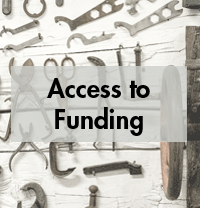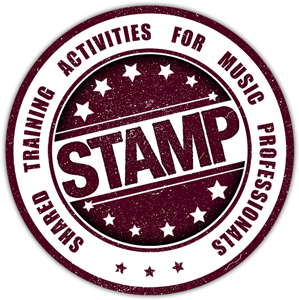
The Youth Committee of the European Choral Association – Europa Cantat gathered some information on different types of funding and possible funding sources, which you will find below
We also recommend to consult “On the Move”: https://on-the-move.org/
Most of the events need some kind of budget. For the culture sector, money is not the easiest topic.
There are four main types of financing the art:
- Public funding, subsidies
- Self-generated income (ticket sales, merchandise)
- Private funding (sponsorship, foundations)
- Own contribution (time, infrastructure, rent)
Public funding/subsidies
Public funding is a financial support by the government to provide goods and services for the general public.
European public funding sources:
European Cultural Foundation
The European Cultural Foundation (ECF) is an independent cultural foundation which catalyses, connects and communicates civil society initiatives in arts and culture. ECF supports through grants, exchanges and incubator programmes.
You can find the list of grants here: https://www.culturalfoundation.eu/grants-exchange/
Visegrad Fund
The Visegrad Fund is an international donor organization, established in 2000 by the governments of the Visegrad Group countries—Czechia, Hungary, Poland and Slovakia to promote regional cooperation in the Visegrad region (V4) as well as between the V4 region and other countries, especially in the Western Balkans and Eastern Partnership regions.
For culture the fund supports projects that strengthen regional and European identity through common cultural initiatives in Visegrad region.
Read more about the grant programmes and the deadlines here: https://www.visegradfund.org/apply/grants/
Nordic Culture Point
The Nordic Culture Point administers four grant programmes, which are divided into six different funding options. The programmes provide the opportunity to create culture, conduct projects and create meetings between artists and cultural workers in the Nordic region and Baltic states. The shared feature of all supported projects is that they have a strong Nordic dimension and are culturally innovative. There are grant programmes for children, young people and adults.
Read more about the grants here: https://www.nordiskkulturkontakt.org/en/grants/about-the-grant-programmes/
Nordisk Kulturfond (Nordic Culture Fund)
The Fund contributes to positive artistic and cultural development in the Nordic Region by promoting cooperation between Denmark, Finland, Iceland, Norway, Sweden, the Faroe Islands, Greenland and Åland. It does so by gathering knowledge and information, building networks and providing financial support. NCF allocates grants on three levels: OPSTART which accepts applications all year round, Project funding with three annual deadlines and priority theme funding pools with specific criteria and application deadlines.
Read more about the grants here: https://www.nordiskkulturfond.org/en/apply-for-funding/
Creative Europe
Creative Europe is the European Commission’s framework programme for supporting culture and audiovisual sectors. The programme has a thorough list of different funding possibilities, which you can take a look at here: https://eacea.ec.europa.eu/creative-europe/funding_en
Erasmus+
The European Union’s Erasmus+ programme is a funding scheme to support activities in the fields of Education, Training, Youth and Sport. The Programme is made up of three so-called “Key Actions” and two additional actions. Check out the funding possibilities here: https://eacea.ec.europa.eu/erasmus-plus/funding_en
Local public funding sources
Every country has their own local authorities or funds for culture (e.g grants by the Ministry of Culture, etc.). Research online your own countries possibilities for funding cultural projects.
Private funding
Private funding is a financial support by private companies, individuals or organisations. Privately funded refers to the source of the money for the project, business or endeavor. If the money is raised through donations, the money comes from the private sector or funds.
Private funding are for example sponsorship and donations/fundraising
Sponsorship is the act of supporting an event, individual, organisation or an activity financially or through products. Sponsorship is mainly two-way – the sponsor supports financially (or with products) and the sponsored event, individual, etc. gives something back (e.g. promotional value).
5 steps to sponsorship
- Analyse the current situation – the existing funding system, existing sponsors, what can you offer for the future sponsors, analyse the target group and the image and reputation of your event/activity/organisation
- Describe the desired situation – define targets and dependencies for the amount of sponsorship, define the number of sponsors
- Define the target group and targets – define specific candidates and amounts/offerings, make research (start from your team – who has contacts with who. A warm contact is always better than a cold contact!)
- Write sponsoring offer (5-7 pages) – this should include a budget, description of the project/institution, description of the target group, the offerings for the sponsor (be exclusive and special!), press clippings (if it is suitable), how you are advertising and the timeline of the project
- Make contact
- Make a personal contact (call (2-3 min), meet, etc.) – build up a database
- Send the material – if not replying, you can call in a few days
- Longer negotiation – never accept a no as a no, ask why, maybe in the future, do they know if someone may be interested in supporting.
- Write a written contract
-> Also see “success story” in this field, sent to us by STAMP Partner ECMTA: Successful cooperation between the music and business fields as illustrated by the Instrument Foundation
Self-generated income
Self-generated income is the financial income which you have gained with your product or service, for example ticket revenue, merchandise, membership fee, additional services. Try to think ahead which self-generated income you can gain with your service or product and if there are any additional ways to have (e.g. selling programme books, CDs, etc.)
Own contribution
Not every contribution is financial – also time and existing goods (infrastructure) has some value. There are possible to rent some things (or borrow) for your project (smaller things like scoreholders or bigger things like logistics and transport, renting a van). Think critically about the non-monetary contribution and list the possibilities for it.
-> Contributed by the Youth Committee of ECA-EC

